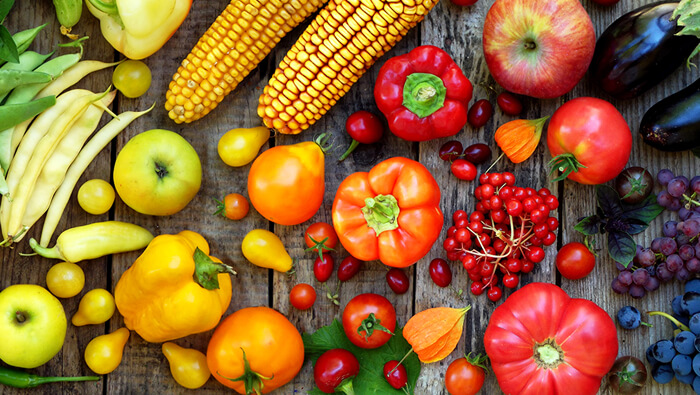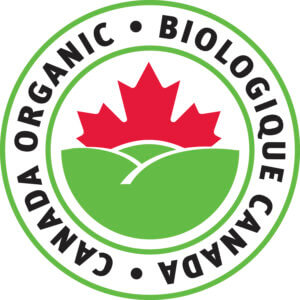
So What’s the Truth Behind Buying “Organic”?
This has been a popular topic over the past few years. Should we buy organic, or stick with non-organic/conventional foods? Many people assume organic is a waste of money, or think it’s just too expensive. Others will only buy organic fruits and vegetables. So what’s the truth about organic? Let’s dig deeper on the meaning of “organic”.
So what does organic mean?
The standard definition of organic is “relating to or derived from living matter”. In terms of food, organic generally means the product of a farming system which avoids the use of man-made fertilizers, heavy or any use of pesticides, antibiotics and growth hormones in livestock, livestock feed additives, and no GMOs (genetically modified organisms). Essentially, organic means it’s coming from nature the way Mother Nature intended it to be.
Organic can mean different things depending on the country though, and in some, the term may not even be regulated. Fortunately for us Canadians, Canada has very strict guidelines and regulations on what can be labelled as “Organic”.
Organic farming in Canada prohibits:
- Synthetic pesticides, herbicides, fungicides
- Synthetic fertilizer
- Genetically modified organisms (GMOs) à through all farming stages
- Ionizing Radiation (zapping food with nuclear radiation to kill germs)
- Sewage sludge
- Growth hormones and antibiotics for livestock
- Cloned animals
Organic farming certification standards in Canada: (excerpts from OCIA certification standards)
- Land must have had no use of and be clear of unacceptable/prohibited materials for at least 36 months prior to first harvest à this means, for example, if an organic farmer buys land that use to be for conventional farming, they must wait 3 years before they can start their practices!
- There must be a physical barrier (e.g. trees, plants) of 25ft between the organic farm and roads, non-organic farms, homes, etc.
- Holistic soil maintenance à crop rotation, composting, reduce tillage, routine soil testing, etc.
- Generation of an audit trail is mandatory à have to annually pay to obtain organic labelling, have random inspections done, and keep notes and proof that they’re following the regulations
- Use renewable resources wherever possible
- Humane livestock practices
- And many more
So how do I know it’s organic?
Watch your labels! A “100% organic” claim is not permitted. All products with an organic content of 95% or greater are considered organic and may be labelled as such. “Made with organic ingredients” is also not permitted. Products that contain 70-95% or more organic ingredients must declare the percentage of organic content on the label. Products with <70% may only indicate which ingredients are organic.
A product can only be labelled as organic if it has been certified by an accredited certification body that meets the Canadian Organic Standards. All products that display the Canadian organic logo, must also include the name of the certification body that certified it.

Use of the Canadian Organic Logo is voluntary and only permitted on products that contain 95% or more organic content. Since voluntary, remember that local farmers or food markets may also be organic even if they do not display this logo (to save costs). However, do your research with these! You will have to ask the vendor about their farming methods to find out for yourself. Many may claim to be organic without the following the correct procedures.
The aims of the organic production systems standards are to protect consumers against deception and fraud in the marketplace and to protect producers of organic products against unsubstantiated claims or misrepresentation of other agricultural products as being organic.
So should you buy organic or not?
In the end, this is both a personal and financial health choice. Overall, here are some reasons why you should consider buying organic:
- Environmental health à prevents soil erosion, waste, chemical pollution, saves energy, protects water quality, promotes biodiversity, uses renewable resources
- Support humane livestock practices
- Keep chemicals off your plate and out of your body
- More nutritious and nutrient-dense
- Avoid antibiotics and hormones in your food à harmful to your health
- Help farm workers à fair trade and fair wages
- Support a true and local economy à when buying organic, we’re paying the “true cost” of product; when buying conventional, they have a higher mark up
- Tastes better! – more flavourful
Want to learn more on whether to buy organic or not? Stay tuned next week for my next blog post “Clean 15 & The Dirty Dozen” for more information on when to buy organic, and when buying conventionally farmed foods are okay.